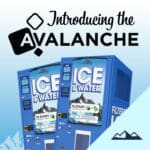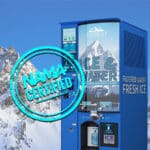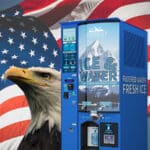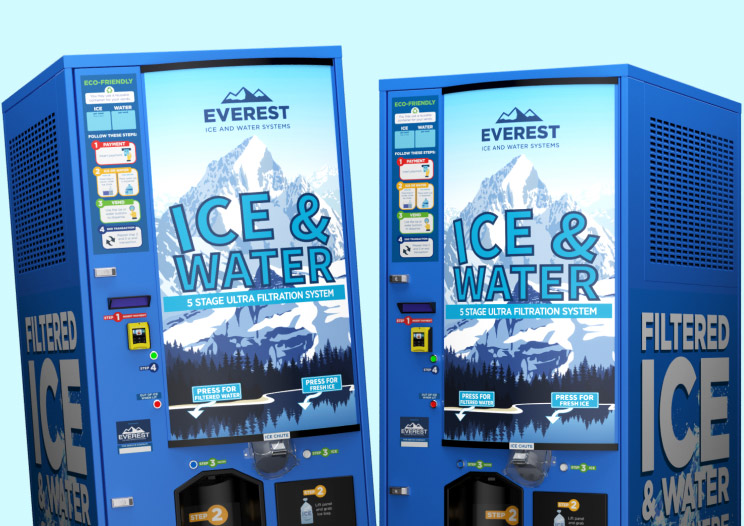Are Water Vending Machines Safe for Drinking Water?
Water vending machines provide convenient access to purified drinking water for a small fee. With thousands of water vending units in operation across the US, water vending has become a popular choice for business owners and individuals looking for ways to make a passive income. But are these self-serve dispensers safe? Understanding whether water machines reliably produce clean, contaminant-free drinking water is crucial.
An Introduction to Water Vending Machines
First, let’s look at what exactly water machines are and how they work before digging into safety considerations.
What Are Water Vending Machines?
Water vending machines are self-service units designed to dispense purified drinking water. Customers quickly fill their own containers, usually in gallon and 5-gallon increments. Water vending units use a multi-step filtration process to treat water from an existing municipal source to stringent purity standards. This eliminates potential contaminants like chlorine and hard minerals while also improving taste and odor.
How Do Water Vending Machines Work?
A typical water vending unit connects to the existing water supply and integrates both treatment and dispensing functions. Water passes through several stages of filtration, including processes like sediment filtration, carbon filtration, and UV sterilization.
Customers insert payment and dispense their desired quantity into their own container using the vending unit’s self-service taps. Machines range from simple coin and bill operations to accepting credit cards.
Evaluating the Safety of Water Vending Machines
Water machines must adhere to strict regulations to ensure safety. Understanding the standards and treatment methods will help you evaluate water vending quality.
Quality Standards for Vended Water
Vended water usually comes from a public water supply. The water supply is regulated under the U.S. Environmental Protection Agency’s (EPA) Safe Water Drinking Act and National Primary Drinking Water Regulations, which limit the levels of contaminants present in drinking water to protect public health. The EPA monitors states and water suppliers to ensure these standards are being enforced. Public water systems must test for and eliminate contaminants to achieve the same safety standards as public water systems.
Local authorities, usually public health departments, require permits and periodic testing to operate water vending machines. Additionally, water machines can be certified by organizations such as the National Automatic Machine Association (NAMA) to verify they meet public health requirements set by the U.S. Food and Drug Administration (FDA). Certified units undergo rigorous third-party testing that demonstrates they meet public health, safety, and industry guidelines.
Combined with regular self-monitoring and independent testing, these regulations and certifications aim to guarantee vended water safety.
Assessment of Water Treatment Processes in Vending Machines
Examining the specific treatment steps is another way to gauge water vending safety. Here are some common methods of water filtration and purification:
- Sediment Filtration: Removes sediment through mechanical filtration.
- Carbon Filtration: Removes certain chemicals like chlorine to improve taste and odor.
- UV Sterilization: UV light destroys remaining bacteria and microorganisms for microbiological purity.
- Scale Reduction Filtration: Uses a template-assisted crystallization process to reduce calcium carbonate scale formation.
When multiple stages are included, fully certified water vending units go above and beyond public water system standards for safety and purity.
Pros and Cons of Using Water Vending Machines
Understanding the key advantages and potential drawbacks provides a balanced view of whether water vending fits your needs.
Benefits of Using Water Vending Machines
Water machines offer a number of compelling benefits for both entrepreneurs and the public:
- Convenience: Easy 24/7 access to purified water wherever machines are located.
- Cost: The costs of water vending machines lead to significant savings compared to bottled water. Vended water averages just $0.25-$1 per gallon.
- Quality: Multi-stage filtration often exceeds tap water purity, matching or even surpassing bottled water quality.
- Eco-Friendly: Using self-service machines cuts down on plastic waste from water bottles. Users can fill reusable containers.
- Consistency: Unlike tap water, which varies in quality by the municipality, vended water quality remains consistent across machines.
For many consumers, the convenience, cost savings, and guaranteed purity of water vending make it an attractive option compared to alternatives.
Potential Drawbacks of Water Vending Machines
However, there are some aspects to consider as possible downsides:
- Requires carrying and water containers for use.
- Limited to filling volumes available on the machine.
- Minor potential for post-vending contamination if containers aren’t properly handled.
- Small risk of periodic temporary shut-downs for servicing and sanitizing.
While not deal-breakers, being aware of these factors allows customers to take steps to mitigate them. Overall, water vending remains a safe option if proper precautions are followed.
Best Practices for Safe Use of Water Vending Machines
Purchasing the right water vending unit and properly handling water is important for safety. Follow these best practices.
Tips for Choosing a Reliable Water Vending Machine
- Verify the machine is certified to NAMA standards and displays the certification mark.
- Look for water results documenting the latest water quality testing for contaminants.
- Select units manufactured by reputable companies like Everest that specialize in purified water vending.
- Avoid outdated machines that use older technology or ineffective filtration methods.
Proper Handling and Storage of Vended Water
- Encourage customers to bring thoroughly cleaned containers in good condition to fill. They should never use old plastic bottles or milk jugs.
- Customers should keep the spout sanitary by avoiding contact between it and their container opening. Post signage with sanitation guidelines.
- Display clear and easy-to-follow instructions on the machine for proper use.
- After filling, customers should get their water home promptly and refrigerate it.
- When setting up your outdoor water vending unit, ensure the exterior is kept clean. Check for any damage from weather or vandalism. Address any issues immediately to prevent contamination.
Following these filling and storage methods helps keep your vended water pure and safe for drinking.
Invest in Everest Purified Water Vending Machines
For business owners interested in boosting convenience with a water vending investment, Everest Ice and Water Systems provides the gold standard in reliability and safety. We integrate industry-leading Everpure filtration technology to produce pure water that tastes and smells better than what you get from the tap. The Everpure Five Stage Filtration System combines mechanical filtration, carbon filtration, UV sterilization, and scale reduction for maximum contaminant removal and machine protection.
With a small footprint for flexible placement, no need for staffing or restocking, and remote management capabilities, Everest Ice and Water machines deliver purified water vending profitability. Our machines produce consistent, clean water with minimal maintenance, giving you peace of mind that your customers are getting 24/7 access to high-quality vended water.
FAQs
Is vended water really as safe as tap water?
Yes. Water vending machines generally get their water from municipal supplies, which adhere to EPA drinking water standards for providing safe, healthy water and removing any potential contaminants. With the addition of multi-stage filtration processes like those used by Everest, water machines surpass tap water purity.
How often are machines cleaned and tested?
Machine owners should inspect, clean, and sanitize machines regularly. Quarterly water testing ensures standards are continuously met. Unscheduled testing also occurs if contamination is suspected.
Can the machines harbor mold or bacteria?
Certified filtration components prevent microbial growth, and sanitizing procedures keep tanks and hardware hygienic. Ozone injection inhibits any biological film formation.
What is the shelf life of water from a vending unit?
When refrigerated after purchase, vended water maintains its best quality, smell, and taste if it’s consumed within a week. Freezing the water can extend its freshness.







